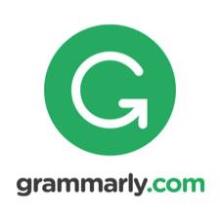Enhance the Classroom with Chrome Extensions
- By Erin Wilkey Oh

- 05/25/16
With the rise of Chromebooks in schools, more student-friendly, classroom-ready Chrome extensions are popping up in the Chrome store. These clever tools can enhance students' and teachers' online activities by connecting to useful utilities or providing powerful features within the browser window itself. From bookmarking and citation plug-ins to collaboration tools, Chrome extensions can boost student learning and offer teachers easy new ways to plan lessons, manage student work and more.
Take a look at three of our current favorite Chrome extensions for students and teachers. Have an extension you can't teach without? Tell us about it in the comments below!

Diigo
Price: Free for 1,000 bookmarks/year; $20-$40/year for unlimited bookmarks
Platforms: Android, Chrome, Firefox, IE, iOS, Mac and Web
Grades: 7–12
Diigo has evolved from a simple bookmarking tool into a collaborative destination for collecting, commenting on and sharing information online. Students add the Diigo bookmarklet (Diigolet) to the browser's bookmark bar and then use it to save pages to a personal library section on Diigo. They can search for, bookmark, organize, annotate, collaborate, and share resources they find online. Diigo also gives teachers a way to share relevant, prescreened web content, with notes to reinforce any lessons in the text.

Grammarly
Price: Free; premium version $12-$30/month
Platforms: Chrome and Web
Grades: 6–12
Grammarly is a website and Chrome extension geared toward helping writers craft their very best work. On the site, writers can cut and paste or upload work they'd like to edit. Once it's uploaded, users can get feedback and suggestions with hints to understand why they should change or improve certain aspects of their writing. The browser extension automatically proofreads as you compose on Gmail, Facebook, Twitter, LinkedIn, Tumblr and nearly anywhere else on the web, offering spelling, grammar and style suggestions.

Kaizena
Price: Free
Platforms: Chrome and web
Grades: 7–12
Kaizena is a Google Chrome add-on used in conjunction with Google Drive. If you're looking to ditch your red pen and grade digitally, this is your tool. On Kaizena, you can review and edit student papers that students drop into your inbox or request that you review. Teachers can provide feedback in three ways: Use the microphone to record audio feedback, use the text option to type feedback, or link a resource such as a YouTube video or website for students to review. There's also a Kaizena Mini version, which opens right in your Google Doc rather than in a new window.
About the Author
Erin Wilkey Oh is executive editor, education marketing at Common Sense Media.
Common Sense Education helps educators find the best edtech tools, learn best practices for teaching with tech, and equip students with the skills they need to use technology safely and responsibly. Go to Common Sense Education for free resources including full reviews of digital tools, ready-made lesson plans, videos, webinars, and more.